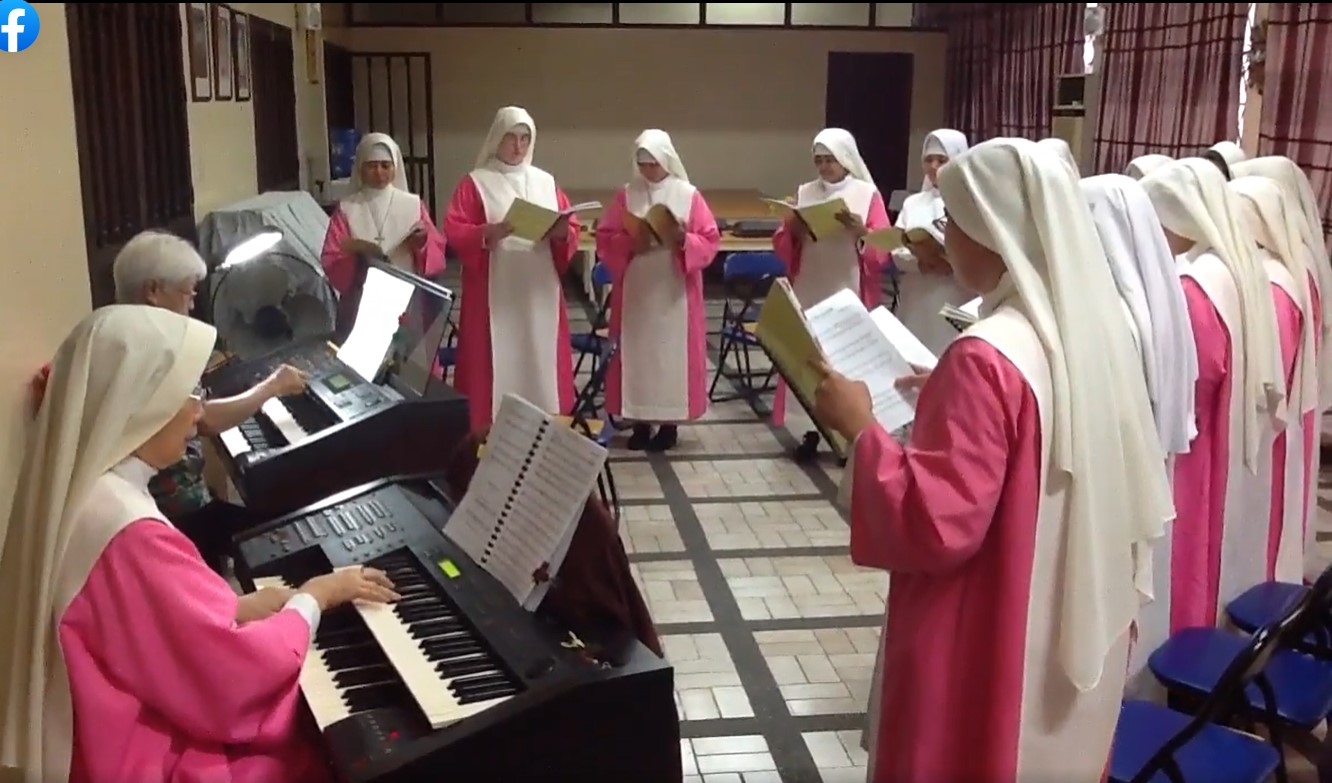An old chapel on Green Street in central Philadelphia may be a real eye opener for first-time visitors who may see a nun in a bright pink habit, fervently praying. She is continuing an unbroken 108-year vigil of adoration before the Blessed Sacrament. She and the other women living in this convent, have chosen to live behind the bars of a cloistered religious order.
Whether at this location or others spread throughout the world, there is always a sister either kneeling before the Eucharist or a group of them beside the altar singing the Liturgy of the Hours from behind the bars of the ornate grille that separates them from the outside world. These Holy Spirit Adoration Sisters — fondly known as the “Pink Sisters” — live their lives of faith centered around perpetual Eucharistic adoration and prayer for the world.

In the year 2023 it is somewhat surprising to learn that orders of cloistered nuns still exist. Their calling is an extreme one: to stay inside the walls of their convent and spend their days and nights in prayer and silent contemplation. They do not interact with the outside world except by necessity. There are only 1,412 cloistered nuns out of 66,608 sisters in the United States. They take four four final vows: chastity, poverty, enclosure and obedience, and they follow a rule of silence.
The ”Pink Sisters” in Philadelphia is one such order. Founded in 1875 by St. Arnold Janssen in Steyl, Holland, in 1875, it eventually evolved into the Holy Spirit Adoration Sisters as a purely contemplative order in 1896 to support missionaries, priests and the world with their perpetual prayer before the Blessed Sacrament. “He knew that prayer would do the work more effectively than just being active,” Sister Mary Amatrix said, adding that he “had a great devotion to the Holy Spirit.”
Their bright-pink habits, the first thing people notice, symbolize “the love and the joy of the Holy Spirit.” Bursts of pink also are present throughout the convent and chapel in the stained glass, the altar flowers, and even in the color of the dishes used for visitors.

The majority of the sisters in Philadelphia now are from the Philippines, where “vocations” are more plentiful than in the U.S. or Europe. The solution to the shortage of novitiates, Sister Mary Amatrix believes, is in helping young people discern the voice of God amid the distractions of the world. “You fall in love”, she says, “all your attention is towards the beloved…That’s the same thing with Jesus.” She noted that “the Holy Spirit always works in quiet, powerful and mysterious ways, so they have to really find time for silence.”
She encouraged people to take “even just three or five minutes” every day with Scripture or a prayer, because “if you let the Lord in, even just a tiny bit, he will inspire you.”

Sister Mary Amatrix noted that many young people “don’t experience silence in their homes…The devil is always trying very hard to make so much noise because he cannot stand it,” she said. She encouraged walks in nature without looking at a phone because contemplating natural beauty is also a pathway to God. She feels sorrow for young people, saying that many today are starved for love. “Sometimes when you cannot stand the silence, it’s because you do not want to face yourself,” she said. “All those thoughts come up; all your anxieties, your insecurities.” She emphasized that “young people need love, they don’t want words,” and “they need love from their parents. They need love from friends. That’s how they get to know God’s love.”
The sisters’ days are very structured in the cloister and for their central mission of perpetual adoration, the sisters have been taking half-hour shifts, 24 hours a day, seven days a week, since 1915. In addition, their schedule includes Mass, mealtimes, recreation, housework, gardening and answering correspondence.

“Life inside is so simple,” according to Sister Mary Angela. “It’s a joy that the world cannot give. We’ve been in the world before we entered. It’s really different: Here we have peace of mind.” While she acknowledged the “challenges and trials” of community life, she said that it’s different because “you are living on the grace of God,” and if you “give everything to the Lord, he will do everything.”
The sisters don’t see themselves as “cut off” from the world, despite the bars of the cloister. Instead, they feel very connected to the world through their constant prayer for it. Sister Mary Amatrix referenced a saying that “contemplative sisters always get the news first” because people will reach out asking for prayer.












